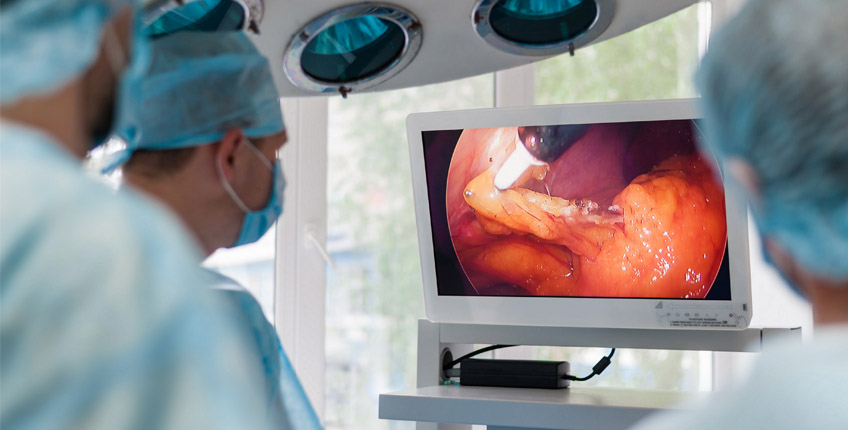Laparoscopy cholecystectomy
What is it?
Also known as laser surgery, it is a procedure in which general anesthesia lasts for approximately 30 min and involves removing the diseased gallbladder ( Many times with stones inside). The surgery is performed by means of small incisions in the skin (4) of a half centimeter to 1 centimeter the largest, through which a high resolution camera and instruments are introduced. With that vision and the instruments delicately separate the tissues and extract the diseased vesicle by placing it in a special bag.

DIET AND RECOMMENDATIONS SUBSEQUENT TO COLLECTECTOMY BY LAPAROSCOPY
After having a cholecystectomy (removal or removal of the gallbladder), the body remains temporarily (2 - 3 weeks) without adequate reserve of bile to be able to digest fatty foods normally.
If the patient eats fatty foods in the first few weeks after surgery, the patient may experience indigestion, bloating, cramps, nausea, vomiting and / or diarrhea.
Even though this is a transient period, completely normal after surgery, it is important to follow some recommendations on food to avoid discomfort or complications.
General Tips:
- Eat slowly and chew food well.
- Make 5 or 6 meals a day, with small to moderate portions, eat until you feel satiated NOT to fill.
- Walk 5 to 10 minutes minimum after meals to facilitate digestion.
- Avoid intense exercise or physical exertion, just perform breathing exercises with deep breaths several times a day.
- Avoid greasy and spicy foods.
Recommended Foods:
- Tea, hot infusions especially of chamomile, lemonade.
- Non-fat dairy products, light or 2%.
- Rice, brown rice, pasta or watery soups, whole wheat bread.
- Legumes, preferably shelled, such as lentils, chickpeas, beans, beans in moderate portions.
- Fruits, baked like apple and pear. Raw: pear, papaya, melon, grapes. Canned fruits.
- Vegetables: spinach, lettuce, chard, carrot, potato, chayote. It can be mashed or non-dairy creams.
- White meat (skinless chicken, turkey, turkey breast ham, fish) grilled NOT fried or breaded.
- 1 or 2 eggs a day, cooked or prepared to taste without using excess oil.
Prohibited or Very Limited Foods:
- Chocolate
- Red and greasy meats (especially the first week)
- Sausages (sausage, sausage)
- Seafood (shrimp, crab, octopus, oysters)
- Whole milk, butter, whole cream ice cream
- Garlic, cauliflower, turnips, peppers, radishes, onion
- Spicy sauce, spices, vinegars
- Fried or breaded foods
- Alcohol
- Carbonated or carbonated soft drinks

